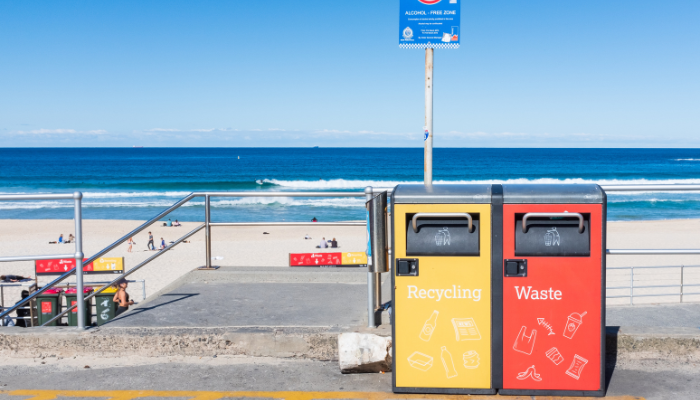How IoT is Helping you Take out the Trash
The smart waste management industry has experienced significant growth over the past few years, with its value soaring to $2.2 billion in 2023¹. The Asia – Pacific (APAC) region is leading this growth, accounting for an estimated 33 percent² of the total expansion. Projected to reach $8.3 billion by 2032, the smart waste management industry shows no signs of slowing; however, this rapid growth has not come without its challenges.
As more cities rely on smart solutions to streamline operations like waste management, the more important reliable connectivity becomes. In this article we’ll explore how IoT-powered solutions are enabling cities to tackle issues like waste management greener and more effectively – and how none of that is possible without infallible connectivity to back it up. Two primary issues with traditional waste management are the near constant disruption to operations caused by unpredictable bin overflow and vehicle breakdowns, which can lead to costly pickup delays and maintenance fees; but, the integration of IoT solutions is taking waste management into the future by making such issues a thing of the past. IoT sensors can monitor bin levels in real-time, enabling cities and independent waste management companies to divert their trucks and prevent overflows before they even occur. For waste pickup fleets, IoT sensors monitor vehicle health and trigger alerts when a vehicle requires maintenance, preventing costly breakdowns.
In the long run, those same sensors help cities make data-driven decisions and identify areas that generate high levels of waste, and adjust truck schedules accordingly. IoT also allows companies to analyse the types of waste generated by specific businesses and suggest ways to become more eco-friendly. By leveraging KORE’s full suite of connectivity services, waste management and recycling processes can be streamlined, optimised, and made more sustainable, leading to reduced cost, improved operational efficiency, and a positive impact on the environment; however, none of that is possible without reliable connectivity to fuel it. Our latest case study looks at how reliable connectivity is crucial for the efficient management of smart waste containers. Which are designed to optimise the waste collection process. These containers are equipped with IoT sensors that monitor fill levels and communicate data to waste management systems in real-time. Consistent and reliable connectivity ensures that this data is transmitted promptly and accurately, enabling timely pickups, and reducing the risk of overflows.
This IoT solution not only improves operations but also helps to minimize environmental impact and reduce overall costs by optimising routes and schedules for pickup. KORE supports a connectivity management platform to provision SIM cards for connectivity usage and reporting. KORE connectivity enables waste containers to connect to the network and be wirelessly configured, allowing the system as a whole – from access, billing, and removal – to be accessed 24/7.
Visit KORE at Australasian Waste and Recycling Expo 2024. Stop by stand D51 to speak with experts about the latest in IoT solutions for smart waste management. Schedule a meeting today!
1 https://www.alliedmarketresearch.com/smart-waste-management-market-A08740
2 https://newsroom.technavio.org/smart-waste-managementmarket
-
Subscribe to NSW's biggest platform for waste, recycling and resource recovery
- SUBSCRIBE

